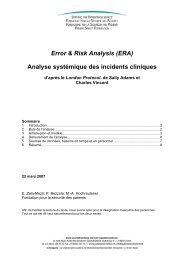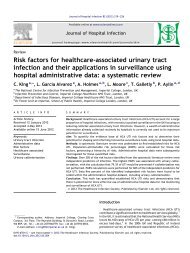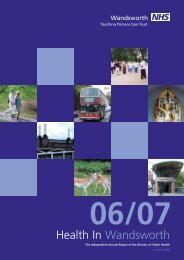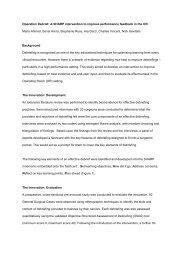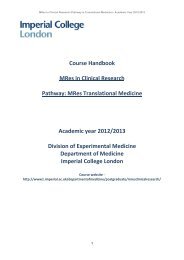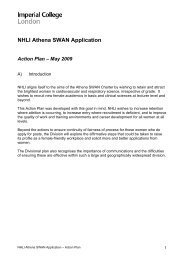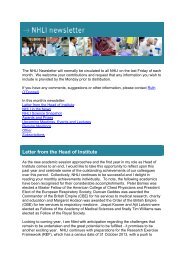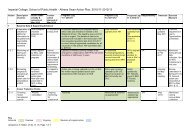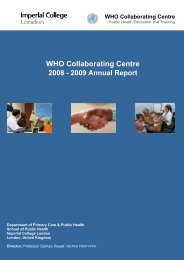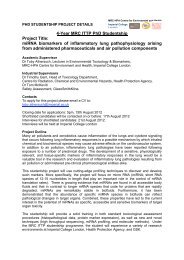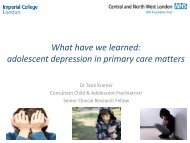QOF Plus Year 1 - Imperial College London
QOF Plus Year 1 - Imperial College London
QOF Plus Year 1 - Imperial College London
Create successful ePaper yourself
Turn your PDF publications into a flip-book with our unique Google optimized e-Paper software.
The National 2007 Quality and Outcomes Framework (<strong>QOF</strong>) Report on Patient Experiencehighlights that “having undertaken an annual survey for several years with the same instruments,many practices have stopped learning anything new about the experience of their patients. Theprocess has therefore become, for at least some practices, a relatively sterile and routine processwith little or no benefit for patients” (Baker, 2007).The report further states that“If the goal is to promote improvement in patient experience through rewardingpractices according to patient survey results, or by creating competition throughpublication of comparative performance data, the development of a standard nationalsurvey that enables comparison between practices would be needed. Evidence wouldalso be needed to show how patient characteristics influence ratings.”This evidence is currently lacking, and an appropriate national survey has not yet been developedsuitable for use as part of <strong>QOF</strong>.In view of this, the proposed indicators are designed instead to promote genuine patientengagement within practices enabling practices to better understand and respond to patientexperiences of care.The Picker General Practice questionnaire is based on the Primary Care Trust (PCT) questionnaire,developed by Picker Institute Europe for use in the NHS Patient Survey Programme. The localversion of the Picker Institute survey has been selected in order to take account of the concernsof local patients.It is proposed that practices should make the survey results available to practice patients, andalso to discus the findings with the PCT in order to produce an action plan. This approach issupported by the conclusions and recommendations of the Department of Health’s recentlypublished report, ‘No Patient Left Behind’ (Lakhani, 2008).Availability of long appointment slots for patients who require interpreting or signingsupport or for those with learning disabilitiesFor patients with particular needs or problems, e.g. those whose first language is not English orthose who need signing support or who have a learning disability, the availability of longerappointments can improve the quality of clinical care provided for patients in these groups. Theproposed patient experience indicators are designed to help address issues raised in the ‘Nopatient left behind’ report (Lakhani, 2008) which highlighted particularly how communicationdifficulties impact on the overall quality of care received by Black and Minority Ethnic (BME)patients, and also has implications for patient safety.Carers of people with learning disabilitiesPeople with learning disabilities typically do not seek out health care. They also experiencebarriers in accessing appropriate services and support for their health needs, health promotionneeds and lifestyle choices. Carers therefore play a potentially crucial role in the lives andexperiences of these patients. Carers are unpaid for their caring role, and they may havesignificant health and financial consequences as a result of their role. These consequences maybe further compounded if the carer is from a disadvantaged group.81



